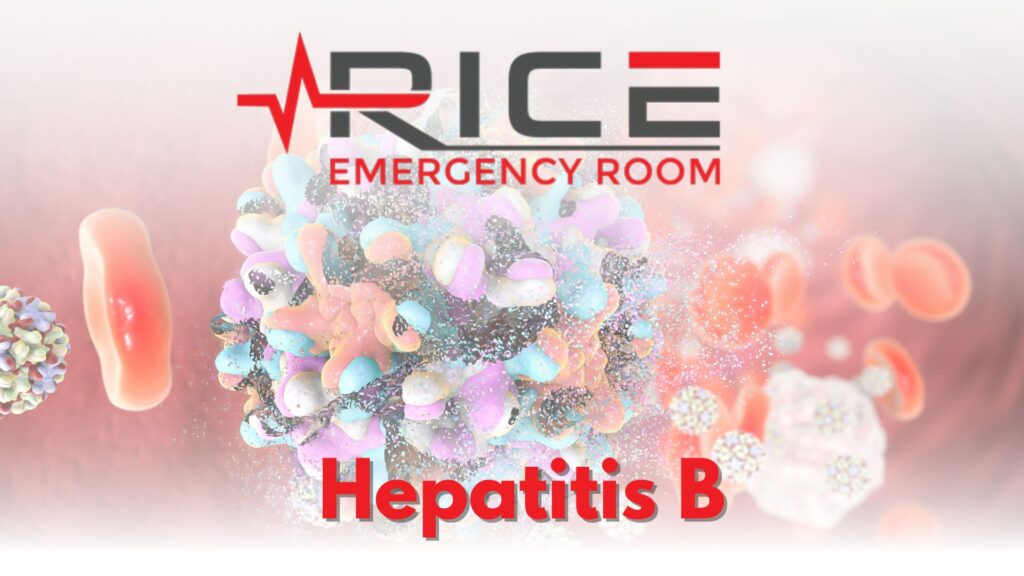Hypertension, known as a silent killer, is a condition that requires proper medical attention. It is considered a warning sign for a more serious medical condition.
There are over 16 million people in the United States who have the ailment. Additionally, only about 1 in 4 adults, or 24 percent, have their hypertension under control.
If you have hypertension, you may develop chronic hypertension or a prolonged increase in blood pressure if you do not undergo proper prevention and treatment methods.
Management of chronic hypertension is straightforward and requires discipline and close communication with your doctor.
This article discusses what chronic hypertension is and how to manage it properly.
What Is Chronic Hypertension?

Chronic hypertension is a condition where your blood pressure level shows an increased rate over a long period.
The standard blood pressure measurement is 120/80mm Hg or lower. Your heart contracts and ejects blood to the arteries and into the other parts of your body at a standard rate.
With chronic hypertension, a prolonged surge in blood pressure forces your heart to work harder than its average capacity.
Thus, when the blood pressure rate is above the expected count, your heart pushes out blood through your body with much force due to the resistance. The condition can result in damage to the heart and the blood vessel.
Chronic Hypertension Symptoms
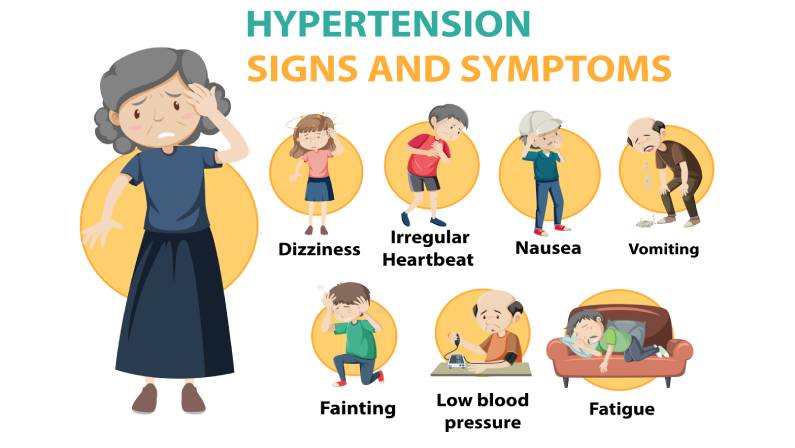
Most people with hypertension remain undiagnosed due to a lack of warning signs. But once the disease strikes, it reveals alarming symptoms, which include:
- Vision change. Blurry visions that result in dizziness
- Irregular heart rhythm. Fast-beating and pounding heart
- Headache. Unexplained headache during the early morning
- Nosebleed. Bleeding of the nose along with vertigo
- Chest pain. Throbbing pain and difficulty in breathing
- Anxiety. Unexplained confusion and stress
Severe symptoms of hypertension need immediate medical attention. Head to Rice Emergency Room in Houston, Tx, to get urgent treatment facilitated by the best emergency medicine specialists in Houston, Texas.
What Causes Chronic Hypertension?
When chronic hypertension is not associated with existing disease, it is identified as primary hypertension.
The most common causes of primary hypertension include:
- Overweight and obesity
- Cigarette smoking
- Excessive alcohol intake
- High salt consumption
- Inactive lifestyle
Insulin-resistant people are also at risk of hypertension.
Meanwhile, chronic hypertension linked to an underlying medical condition is called secondary hypertension.
Medical conditions that may trigger chronic hypertension include:
- Chronic kidney disease
- Diabetes
- Pregnancy
- Sleep apnea
Diagnosis of Hypertension
Hypertension can easily be checked through a blood pressure measurement, either through a manual device, a sphygmomanometer, or an automated arm cuff.
You can directly buy the device in any pharmacy. It can help you monitor your blood pressure level at home and give you an idea of when to see a doctor if there is a dramatic increase in your blood pressure rate.
Your doctor may also advise you to undergo other tests to confirm your condition and identify
any underlying disease you may have.
How Is Chronic Hypertension Treated?
The most common treatment method for chronic hypertension starts with medication. After careful assessment, your doctor will determine the proper cure for your condition.
Diuretics
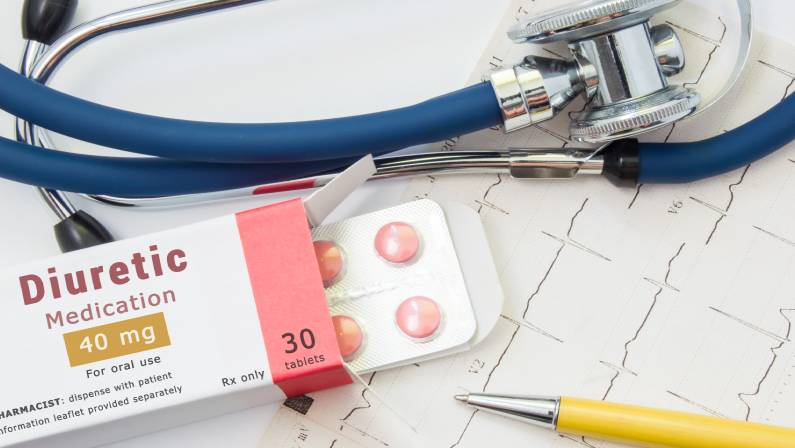
Medications that help in lessening your fluid levels and relieve the arteries. It also lowers potassium levels. However, people with diabetes may have an increase in blood glucose levels after diuretic intake.
Angiotensin-converting enzymes (ACE) inhibitors
ACE inhibitors help relax and open your arteries for improved and smoother blood movement. The medication also lowers blood pressure. Talk to your specialist if you are pregnant or have plans of getting pregnant soon.
Angiotensin II receptor blockers
The medication relaxes the blood vessels and helps open them to facilitate effortless blood flow. You may have to talk to your doctor regarding your intake of this drug if you are pregnant.
Calcium channel blockers
An antihypertensive medication that eases the pressure and force during heart contractions. They work to prevent calcium from penetrating the cells in your arteries and the heart.
What Can You Do To Help Chronic Hypertension?
While medications can effectively manage chronic hypertension, you help your body facilitate a quicker reduction of blood pressure with these preventive measures:
Lose weight
Your weight can affect your blood pressure. With a gain of a few pounds, your heart works harder to pump blood, resulting in to rise in blood pressure. Your arteries are also more strained if there is an increase in weight.
Being overweight and obese also disrupts your breathing pattern, especially during sleep. This condition is called sleep apnea, which also increases blood pressure.
Eating a healthy diet

A nutritious diet can lower your blood pressure. Fill your plate with healthy options of vegetables, fruits, whole grains, and dairy products low in fat.
You also need to avoid consuming food rich in saturated fat and cholesterol, such as processed food, as these excessive intakes also increase blood pressure.
Exercising regularly
A sedentary lifestyle leads to weight gain and increased blood pressure. Exercise consistently for at least 30 minutes every day. You can also incorporate some physical activities such as swimming, aerobics, dancing, and jogging.
Quit smoking
Smoking can increase your risk of lifestyle diseases, including hypertension. Moreover, secondhand smoke also increases plaque accumulation or fatty substances in your arteries, leading to a heart attack.
Limit alcohol intake
Excessive alcohol intake affects your blood pressure level. The recommended limit of alcoholic beverages for men is two glasses, while women can take one glass of alcoholic drink per day.
Improve sleep health
Observe your sleep health and take note of changes in the quality of your sleep. If a loved one notice abnormal breathing patterns while you sleep, consult your doctor for a possible diagnosis of sleep apnea.
This condition is one of the most common symptoms of chronic hypertension. The quicker you get diagnosed with the disease, the easier you can manage your high blood pressure.
Manage stress
Stress is a regular occurrence. But how you manage it makes all the difference, especially if you are dealing with hypertension. Adopt ways how to improve your mental health and overall wellness.
To manage stress, include exercise, meditation, and breathing techniques in your day-to-day activities. You can also maintain healthy communication with family and friends to foster healthy relationships.
Take the prescribed medication
Your medications depend on any underlying condition you have. Your physician may require you to take more than one antihypertensive treatment at low doses.
Since chronic hypertension is a long-term condition, your medications are also for long-term intake unless your doctor sees a dramatic decrease in your blood pressure levels.
Do not change your doses or stop your intake unless advised by your physician to avoid a dangerous impact on your blood pressure level.
Monitor blood pressure levels
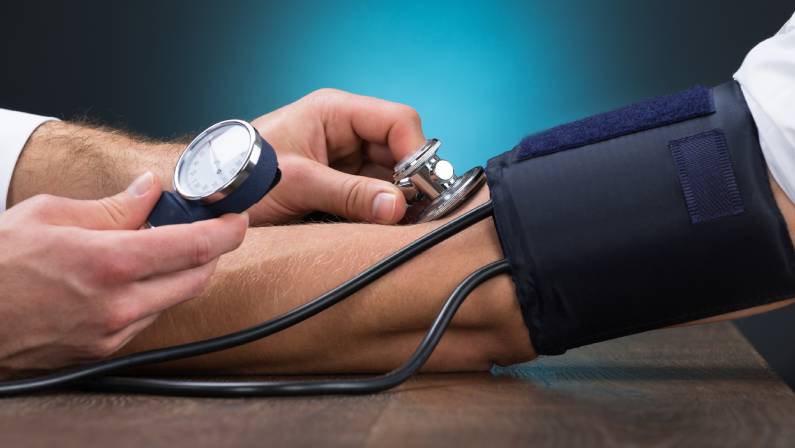
Manage your chronic hypertension at home by monitoring your blood pressure levels daily.
Home monitoring is beneficial in checking the effectiveness of lifestyle changes you have made. It also tracks your blood pressure levels at different times of the day.
Your physician may also instruct you to check your blood pressure levels after a medication intake to monitor the changes in your body.
How Does Chronic Hypertension Impact Pregnancy?
Increased blood pressure is one of the most typical changes in the body when pregnant.
Chronic hypertension is one of the types of high blood pressure conditions linked to pregnancy.
The state refers to high blood pressure before pregnancy or before the pregnancy reaches 20 weeks. The situation continues throughout the pregnancy and even until after giving birth.
Management of Chronic Hypertension During Pregnancy
Prenatal care is an integral part of a healthy pregnancy. It also monitors your blood pressure which is crucial to your overall heart health. If you are diagnosed with chronic hypertension, your doctor may advise an alternative and safe medication during your pregnancy.
Your physician will require you to take regular tests through blood and urine. These tests are also vital in checking your heart and kidney function.
When you enter your second trimester, you may have to undergo any of these tests.
- Ultrasound. An examination that uses sound waves to determine fetal growth.
- Nonstress test. A test that determines the fetal heart rate in connection with fetal movement.
- Biophysical profile. A combination of ultrasound and non-stress test.
- Doppler flow studies. A type of ultrasound that measures blood flow among babies with fetal growth restriction.
Head to Rice Emergency Room if you are pregnant and you experience symptoms of hypertension. Our doctor may advise you to take any of these tests and determine your condition. Call us to learn more about our diagnostic and imaging services.
What Is The Difference Between Acute Hypertension And Chronic Hypertension?
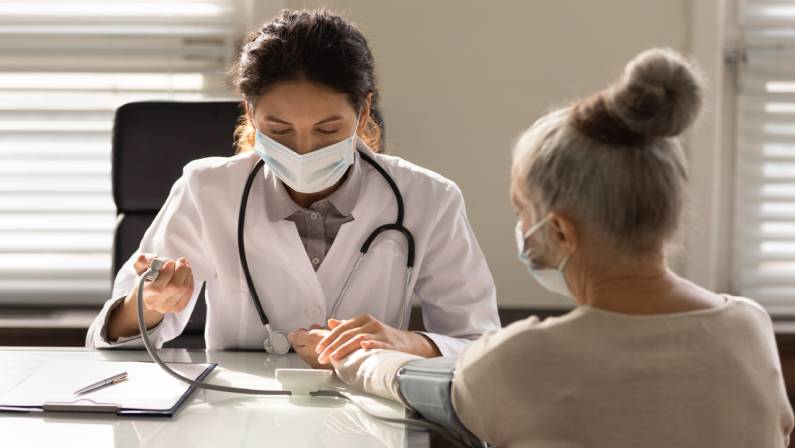
Acute hypertension and chronic hypertension are two conditions that are mistakenly interchanged. While the two are classified as hypertension, they vary in the duration of elevated blood pressure and their underlying factors.
Acute hypertension refers to a disease where you have an increase in blood pressure caused by an event such as stress and trauma. The state is typically for a short period only. The blood pressure may return to its average rate as the triggering factor slow down.
However, there are cases when you may have to go to the emergency room to lower blood pressure from acute hypertension.
On the other hand, chronic hypertension is a medical condition that occurs for long periods.
Thus, this type of hypertension may require lifelong treatment and management.
How Hypertension Can Damage Internal Organs
Proper management of hypertension is crucial in preventing complications in your body, including possible damage to internal organs.
Chronic hypertension may result in organ damage, including:
- Left ventricular hypertrophy. A condition where the heart’s chamber develops a thickened wall.
- Arrhythmias. The irregular bearing of the heart.
- Vision loss. Loss of eyesight due to eye vessel damage in the retina
- Kidney failure. Kidney vessel damage due to increased blood pressure.
- Heart attacks. Hardening or thickening of the arteries blocks smooth blood flow to the heart, causing the heart to malfunction.
- Dementia and stroke. Damage in blood vessels in the brain.
It is crucial to get diagnosed with chronic hypertension and undergo treatment immediately to avoid developing these complications in the future.
Get Urgent Treatment for Chronic Hypertension
If you are dealing with chronic hypertension, don’t let it control you. Be on top of your condition and adopt preventive measures to maintain it.
Chronic hypertension is a dreadful disease that needs urgent medical attention, especially if symptoms begin to arise in moments you do not expect.
Once your experience even the slightest symptoms, head to Rice Emergency Room in Houston, Tx, to get immediate treatment.
Our emergency medicine specialists know how to handle such life-threatening conditions with effective treatment and medication. Call us to learn more about our services.


